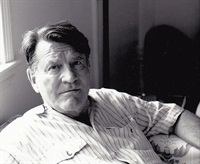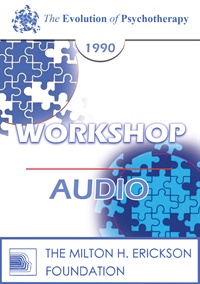EP90 Workshop 32 - Therapy of Adolescence - Jay Haley, MA
- Average Rating:
- Not yet rated
- Topic Areas:
- Workshops | Children and Adolescent Therapy | Family Therapy | Psychotherapy | Strategic Therapy
- Categories:
- Evolution of Psychotherapy | Evolution of Psychotherapy 1990 | Pioneers in Couples and Family Therapy
- Faculty:
- Jay Haley, MA
- Duration:
- 1 Hour 28 Minutes
- Format:
- Audio Only
- Original Program Date:
- Dec 16, 1990
- License:
- Never Expires.
Description
Description: This workshop presents a strategic, problem-focused approach to adolescent therapy, emphasizing family dynamics and the importance of empowering parents. Real cases illustrate how behavioral symptoms shift when family roles and boundaries are addressed. Techniques include structured interventions and culturally sensitive strategies to help parents assert authority and support change.
Syllabus Description: This workshop will center on a family-oriented approach to adolescent problems. Strategic therapy methods will be illustrated and discussed.
Educational Objectives:
- To describe adolescence as a stage of family life
- To learn methods of empowering parents
*Sessions may be edited for content and to preserve confidentiality*
Credits
Handouts
| Timestamped Transcript (989.8 KB) | 23 Pages | Available after Purchase |
| Ericksonian Learning Snapshot (254.6 KB) | 2 Pages | Available after Purchase |
Faculty

Jay Haley, MA Related Seminars and Products
Jay Haley (M.A., 1953, Stanford University) was Director of Family Therapy Institute of Washington, D.C. He was one of the leading exponents of the strategic/interpersonal approach to family therapy. Haley served as Director of the Family Experiment Project at the Mental Research Institute and as Director of Family Therapy Research at the Philadelphia Child Guidance Clinic. He has authoered seven books, co-authored two and edited five. Additionally, he has more than 40 contributions to professional journals and books. Haley is the former editor of Family Process, and the first recipient of the Lifetime Achievement Award of The Milton H. Erickson Foundation.


